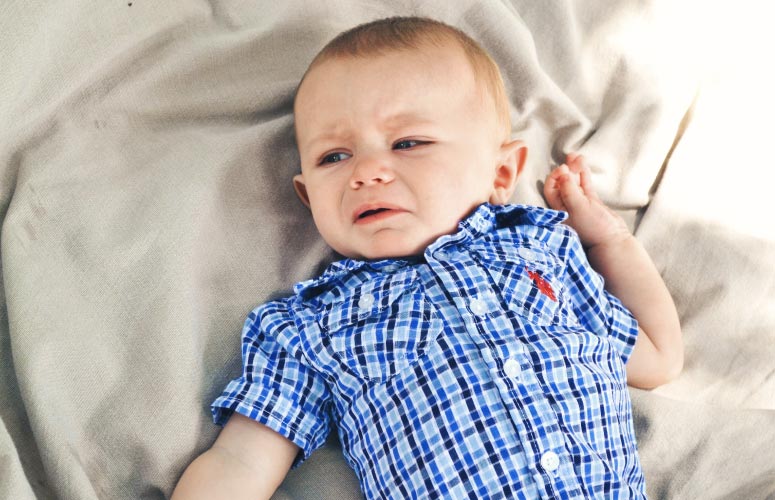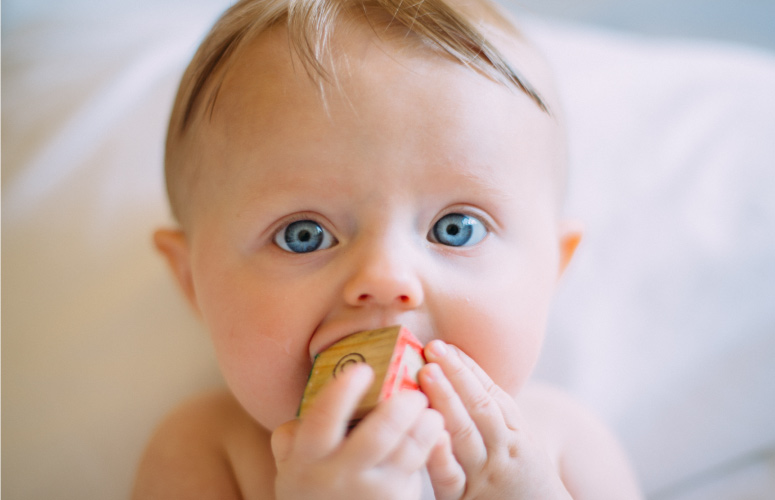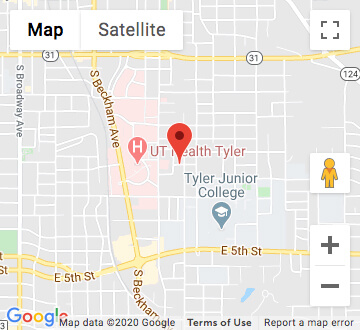
Baby teeth begin emerging as early as four to six months, with the second molars coming in between 25 to 33 months. (Check out this eruption timeline from the American Dental Association to know when your child’s teeth should be coming in!). During this time that your child is “teething”, it’s very possible that they’ll seem a bit cranky. But why does teething make them so irritable? Here, we explain why and how you can help soothe your child during teething.
What Are the Signs & Symptoms of Teething?
Though every child experiences teething differently, there are some common symptoms that can contribute to your child’s discomfort:
- When a new tooth is getting ready to erupt, it can cause puffy gums that look red, swollen, and almost bruised, and are often painful for your child.
- Tooth eruption tends to happen more at night so you may notice that your baby seems even fussier in the evening and may wake up frequently.
- If your baby is pulling on their ear as their teeth start to poke through their gums, they may be experiencing pain in their jaw that gets transferred to their ear canal.
- If your baby seems to prefer nursing or bottle-feeding more than eating from a spoon, this could be because the spoon irritates their inflamed gums.
- Babies often want to gnaw and chomp on things to ease their painful gums.

How Can I Soothe My Child’s Teething Pain?
It’s difficult to watch your child experience pain from teething. Fortunately, there are a number of things you can do to help relieve their discomfort:
- Frozen wet washcloths, teething rings, and other cold, soft things are a great way to help numb tender gums. Be sure not to make them too cold though!
- Some children might benefit from you massaging their gums. The counter pressure or friction on the place where the tooth is about to erupt can really help to soothe your child’s pain.
- Try to distract your baby from the pain by playing and cuddling with them. A new toy may get their mind off the pain too.
- If nothing else works, you can also give your child an over-the-counter pain medication for kids. Just make sure you check with your doctor on the dosage.
Come see Dr. Laird within six months of when your child’s first tooth erupts so she can track your child’s oral development from the get-go. If you’re worried about your child’s teething or have any other questions about your child’s oral health, give our friendly team at Ashley Laird, DDS a call!
Contact Us
